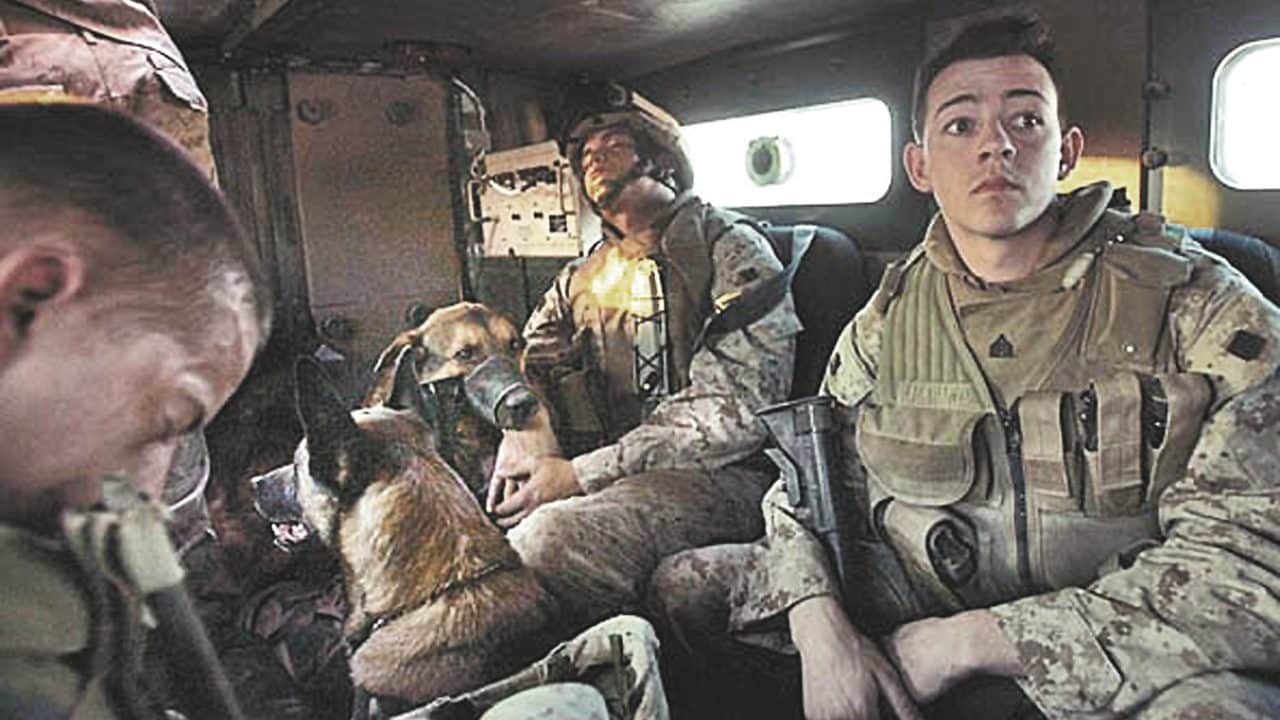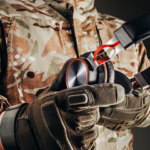by Andrew P. Clifford
The first casualty of war is innocence. You hear this phrase a lot when it comes to experiencing war. This saying is actually on the movie poster for the 1986 film Platoon. I think of the ending scene in Platoon when Charlie Sheen’s character is in a chopper flying out of Vietnam, happy to not be leaving in a body bag. I think of how his character arrived in that combat zone and how much he changed when he left. He arrived as a boy and mentally, because of his loss of innocence, he left as an old man. The experience aged him. What does it mean to lose your innocence in war? This is something I have asked myself from time to time over the past twenty years.
Most people aren’t exposed to chaotic violence at a young age. You play, go to school dances, hang out with friends, play on sports teams, ride bikes, get your license, etc. They experience normal things that are positive and natural. A lot of people go through their lives progressing through these kinds of things. They go to college, get a job in a field they like, get married and have a family, buy a house, etc. These are all normal things. They may have had some setbacks and trauma that slowly altered their innocence that changed them from a kid to an adult. Over time, they realize that life isn’t easy and that bad things certainly do happen. These experiences slowly dissolve innocence over time. War, on the other hand, crushes one’s innocence, almost overnight. Most Americans from my generation have been spared from this. To be quite honest, the human mind isn’t built for the quick crushing of one’s innocence.
I often think about the young man who goes to war. The young man who joined the military and became an infantryman during peacetime. They were up for the challenge and were a recruiter’s dream. They had a real calling and vocation to do something different. They returned home after basic training and infantry school and felt different. They felt like a, and this may sound cliché, like a warrior, a warrior who could possibly one day put it all on the line and possibly die for God and country. Inside that new dress blue uniform, you’re still that innocent kid with all those relatively innocent life experiences. You’re harmless. Combat and death are still foreign to you.

All of a sudden, it’s not a game anymore. America is attacked. The Global War on Terror begins. It’s not just a real-life boot camp challenge that, deep down inside, you thought would end with you never going to war. All of a sudden, the training you did in 29 palms and in the hills of Camp Pendleton is taken a little more seriously. All of a sudden, you’re going to war and on a plane heading to a future war zone. All of a sudden, you’re going to be shooting at humans, not at paper targets.
In the blink of an eye, you’re standing in the desert on the side of a post-apocalyptic-looking freeway with a clear objective, stay alive at all costs and don’t get anyone of your fellow marines killed. That’s it. You think to yourself that it wasn’t that long ago that you were a carefree civilian. You enter the war and are exposed to horrific things. The smell of fire, smoke, burnt metal, and buildings still resonates with you. You are exposed to death for the first time. You may have seen death in movies and maybe even saw a dead relative at a funeral, but not death like this, not mass casualties. You see the collateral damage that war has caused, civilians and enemy combatants who were at the wrong place at the wrong time. It’s as real as it gets. You see death and destruction on a level that no normal person can ever imagine.
You keep going, day to day, seeing death. You see people displaced from their homes and fearing the thought of you now being in their lives. You see what a good leader is and what a poor leader is. You see what a real coward is and what a real hero is. You see the aftermath of what a gunship and artillery shell can do in the middle of the night to an adversary and to its surroundings. You soon begin to realize that you’re no longer that innocent go-lucky kid because of the things you witnessed and because of the things you did. You may have experienced moral injuries, that haunt you to this day. In war, almost overnight, you lost all forms of innocence. You’re transformed. You didn’t realize it at the time, but you will never be the same. This is the new you.
Fast forward twenty years, you realize you have been living with this experience and this is why you are the way you are. It has aged you faster than others. You think about war a lot. It never leaves your mind. It’s constant. You hold the experience close to you. You learn to live with it. Over the years, you hear other veterans talk about being in combat but you just listen to them, you don’t talk about it. You sometimes compare your experience to others and you maybe even undermine your service because you feel like you could have done more.

You think back from time to time and analyze your post-war life and think about how your war experience affected you. You think about how you love and hate the war. You love the real-world life experience that it gave you and how it taught you valuable life lessons that you can’t learn in school, but you hate the chip it started to build on your shoulder over time. You think about the ignorant comments that some people who were never in the military made to you over the years. Like, “man, why did you join the military,” as if you didn’t have anything better to do with your life.
You think about how disconnected people are from the war-fighting population. You think about your mental and physical sacrifice and wonder why this person would ask you such an ignorant question. You think about the people who undermined your service and who didn’t take it seriously. You begin to realize that you are not the same as the rest of the population. You realize that this is what a veteran is, it’s living with the war experience amongst a population who, despite twenty years of war in two war theaters, can’t fully connect to their fellow countrymen who fought so they didn’t have to.
All of a sudden, you are middle-aged. Twenty years of living with the war just flew by. You think back and realize that you never honored yourself. You never acknowledged the loss of innocence, the first real casualty you experienced in the war. You realize that there is still a lot of life to live and that all you can do is move forward and do your best to live a good life. You learn to be grateful every day for another day on this earth because you know that there are those who aren’t as lucky as you who did not make it home. You know that there are those that made it home and have had many more sleepless nights than you.
_______________________
This firs appeared in The Havok Journal on March 24, 2024.
Andrew Clifford was a machine-gunner in Iraq in 2003, part of the first Marine Corps infantry reserve unit to deploy. He received a master’s degree in public administration from Golden Gate University in 2012 and currently works as a police officer in San Francisco.
As the Voice of the Veteran Community, The Havok Journal seeks to publish a variety of perspectives on a number of sensitive subjects. Unless specifically noted otherwise, nothing we publish is an official point of view of The Havok Journal or any part of the U.S. government.
Buy Me A Coffee
The Havok Journal seeks to serve as a voice of the Veteran and First Responder communities through a focus on current affairs and articles of interest to the public in general, and the veteran community in particular. We strive to offer timely, current, and informative content, with the occasional piece focused on entertainment. We are continually expanding and striving to improve the readers’ experience.
© 2024 The Havok Journal
The Havok Journal welcomes re-posting of our original content as long as it is done in compliance with our Terms of Use.


